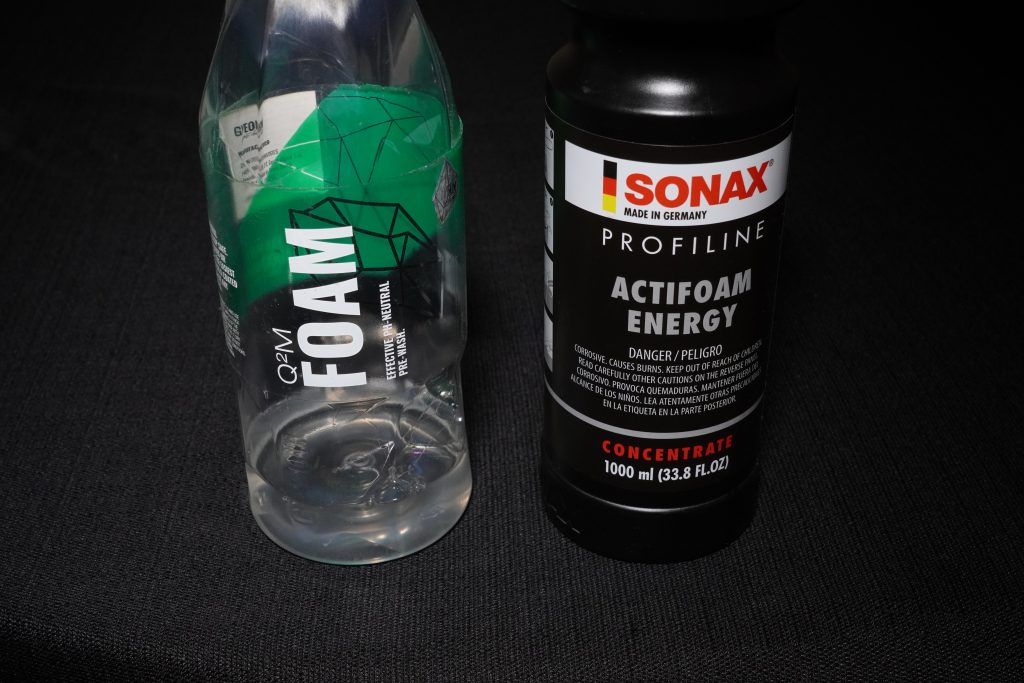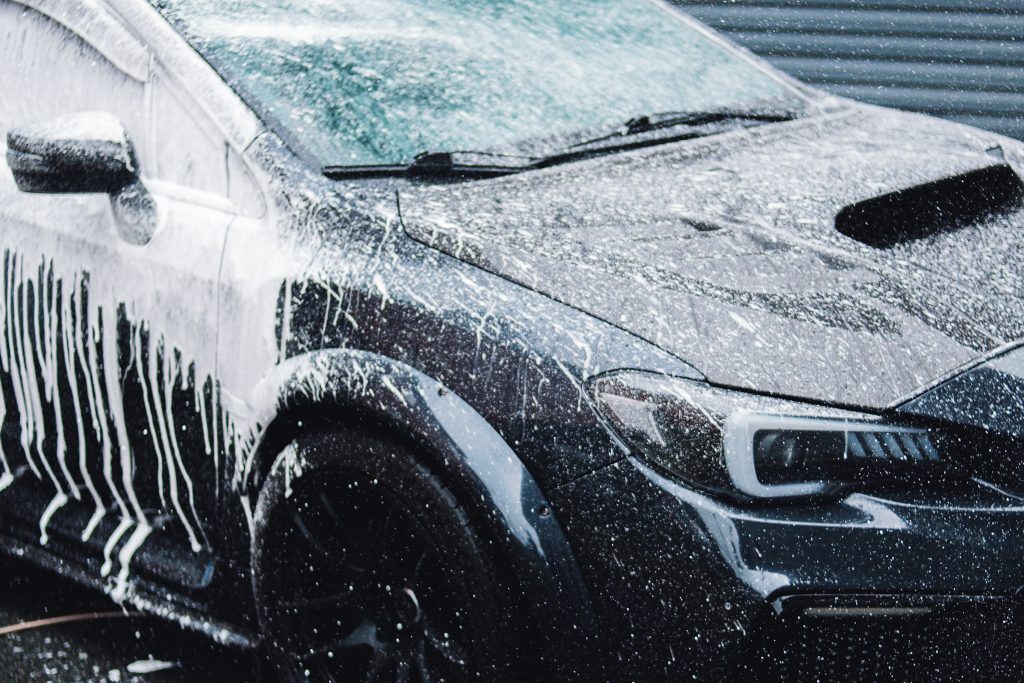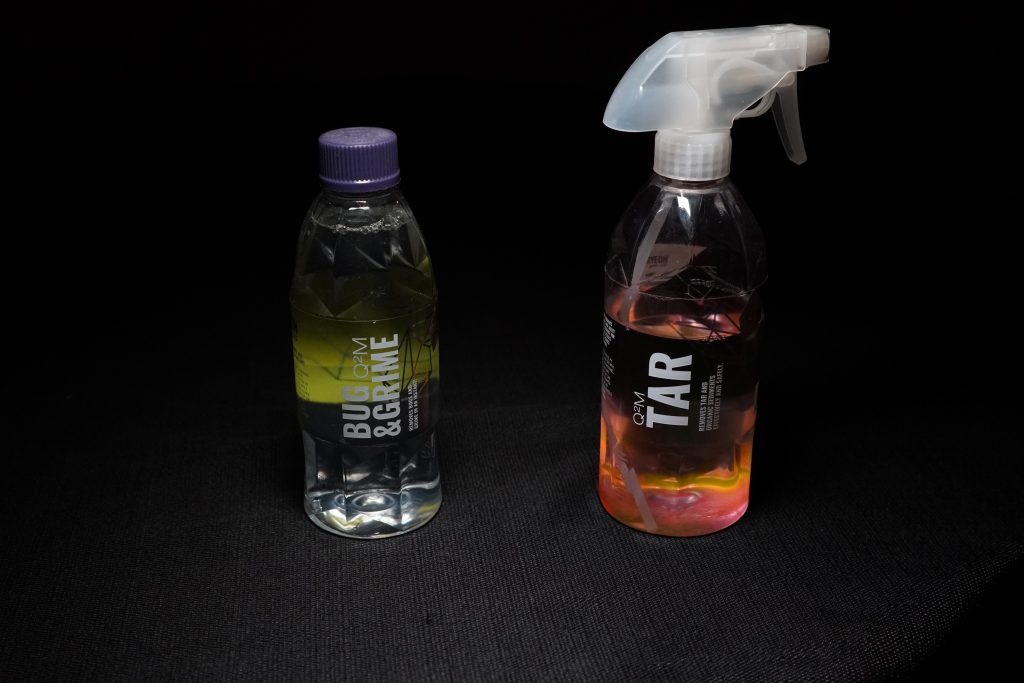Car Cleaning – Car Soap Versus Dish Washing Detergent
by Rodney Tatum‘Hey I have been using dawn for millions of years, and it never hurt anything.’ ‘No if you use dawn, than that makes you the worst detailer ever!’
That was meant to be hyperbole. With a more serious tone, on to the battle between dish soap and car soap.
This article is not meant to attack or discredit anyone who already understands the inherit differences of these detergents yet still sees value in using dish soap to wash a car. I want to be informative and provide clarity as to why I would not use or recommend its use. The question on the merits of car soap have often been a subject of fierce debate. At times I have felt both parties in the debate have missed the mark here with respect to the big picture; the specifics (the why). For the record, I used dish detergent once to wash a car (which survived this experience).
I want to begin by making this extremely key and crucially important point!
Plain water is not a lubricant. Water by itself used to wash (RUBBING action) is actually inherently an abrasive and also a poor cleaner. This is very important for you to understand. I am NOT suggesting at all that rinsing a car is abrasive (i.e. harming the paint), I am referring to someone rubbing a car with plain water. For those that mistakenly believe that drying a dirty car after a rain is a good idea, I believe this is an important reminder that is NOT the case. This should also give pause to those that see a rainy day as an excuse to casually wash their car with quick detailer. They often will experience the same consequences, being micro-scratching.
I want this point to be foundational to this article so you can have a more lucid understanding of the role specific soaps have with respect to cleaning specific surfaces. The ingredients in surfactants (soaps), especially aided by dwell time alter the cleaning power and safety of the liquid.
What is car soap created for and what is dish wash detergent created for? Comparing car cleaning and dish cleaning; think about what we are trying to clean and even more importantly the surface area that is being washed. Chemists are thinking of how to produce the ideal formulation for specific tasks. That does not mean using a product (off label) will necessarily be harmful or inappropriate with respect to getting the job done.
But what could this mean?
I have my doubts that anyone is thinking about micro scratches when washing plates, pots, glasses, and silverware. The combination of a high lubricity soap and water allows an opportunity for the wash process to be more gentle. Yes, there are other factors involved. I will venture to say one of the reasons why cheap car soaps are often not recommended is due to the lack of lubricity. With regard to how much of an issue lubricity/sickness is a good wash mitt, intelligent process, and gentle technique minimizes these problems. Washing a car properly encompasses a lot of factors.

Part of the safe washing process, not marring the paint, comes from the soap effectively removimg the BOND the grime has with the surface. Like most cleaners, you tend to have better results with patience (specifically dwell time). This is what car soap and dish soap have in common. Remember what I originally mentioned about plain water. Rinsing is still VERY VALUABLE and highly recommended for removing lose debris and can help loosen up some grime. But for those that may mock individuals that foam a car, that is the real benefit of going that extra step of using a foam cannon or foam gun.

Imagine pre-soaking very dirty dishes with soap versus plain water. I think we all know what is easier to wash. I see on a daily basis how much damage, that has to be aggressively polished out, done from people desperate trying to scrub stuck on gunk. It is why I always prefer washing a spot twice gently (or at least with SLIGHTLY more pressure the second time) versus grinding my wash mitt the first time to remove every problem in the moment. I know even with some grime remaining, it has been already gently loosened up from my first attempt. This is also where a very good argument can be made that dish soap may be better than car soap.
I can also counter that point by stating the available supply of specialty complimentary cleaners.

I reached out to several representatives of popular detailing brands on this subject. Although the product experts I questioned made it clear that you are likely not going to have a terrible experience with dish soap, they consistently outlined key advantages to using car soap. The potential to accelerate oxidation and fade trim with long term use. Due to its alkalinity it will be more difficult to rinse off, in addition to the likelihood weaker sealants and traditional waxes would be highly degraded by the use of dish soap. But the most common difference was the superior lubricity you will have with high quality car soaps.
Recently playing around with car soap and remembering the lubricity of it, I decided to perform an experiment. I let my hands soak in a sink of dish detergent. I could tell a difference harshness to touch; a very noticeable lack of in lubricity in the water. This did not surprise me. I then decided to immediately put my hands in plain water. What surprised me was how similar the plain water felt compared to the soapy dish detergent water. I understand this is not the most scientific study, but I encourage you to follow suit and try this for yourself.
For those that now know or were already aware of the potential problems that come with using dish detergent as your car soap, I am not going to shame you for choosing to continue down this path. Let us assume you are washing a car GENTLY, with good quality wash mitts and have an intelligent system that does not allow dirt to build up on your wash mitts. Using dish soap would at most create a slight increase in micro-marring. I am well aware that many accomplished professional detailers that I respect and admire, use dishwashing liquid when performing a more exhaustive wash (beyond a maintenance wash) that will include machine polishing anyway. With that said, I prefer to use car soap in all situations. I also could never see myself recommending using dish washing liquid for the reasons mentioned. I just do not see the benefit (perhaps slight savings in cost) being worth the concerns.
Car Soaps:
Foam – Gyeon Foam
Foam – Sonax Actifoam Energy
Specialty Cleaners For More Aggressive Cleaning:









Great article but I have one question if I’m doing a 1 or 2 step paint correction would it be alright to use say Dawn dish soap to clean the paint of all oil n old waxes to try to strip that paint of any protection that is on there so I have bare naked paint to start my paint correction with ?
Thank you. As mentioned there are a few accomplished professional detailers who use dish soap on occasion, and what you described is exactly that scenario which they many. To answer your question of it being alright, I would say yes it is fine with this important understanding of practicality. For one, ofcourse doing it on occasion is not going to do drastic harm to seals and trim, rubber etc. But these professionals who are doing corrections are probably also applying some product to these plastics, trims, and the weather sealing material. Also I believe it is important for you to understand the visual metrics of distinguishing a bare surface are not reliable. Alkaline soap residue does a great job of muting hydrophobic properties in addition to not being practical at removing particularly higher quality waxes and sealants. Reduce likely, but how much? Then you factor there also being more effective car care products available. I have also always treated the stripping process as just that (a process). That is where the lines blur to me of not saying dish soap is something bad or just being totally against it, but at the same time not (from my perspective) recommending it either.
Next discuss the use of Lemon Pledge on Corvettes…lol
I completely with Todd, it would be counter productive to use PH-balanced soaps to prepare for a correction.
When it comes to cleaning your car, using the right soap is important to avoid damaging the paint and other surfaces. While dish washing detergent may seem like a convenient and cost-effective option, it can actually do more harm than good.
Dish washing detergent is designed to cut through grease and grime on dishes, but it can also strip away protective coatings and waxes on your car’s exterior. This can leave the paint vulnerable to damage from UV rays, water spots, and other environmental factors. In addition, dish washing detergent can be too harsh for the sensitive surfaces of your car’s interior, such as leather or vinyl seats.
On the other hand, car soap is specifically formulated to clean your car without damaging the paint or stripping away protective coatings. It is designed to remove dirt, grime, and other contaminants while leaving a protective layer that helps to keep your car looking shiny and new. Car soap also often contains additional ingredients, such as wax or polymers, that help to protect and maintain the paint.
In short, while dishwashing detergent may seem like a quick and easy solution for cleaning your car, it is not the best choice for protecting your car’s paint and other surfaces. Using high-quality car soap is a much better option that will help to keep your car looking great for years to come.
What a great article.